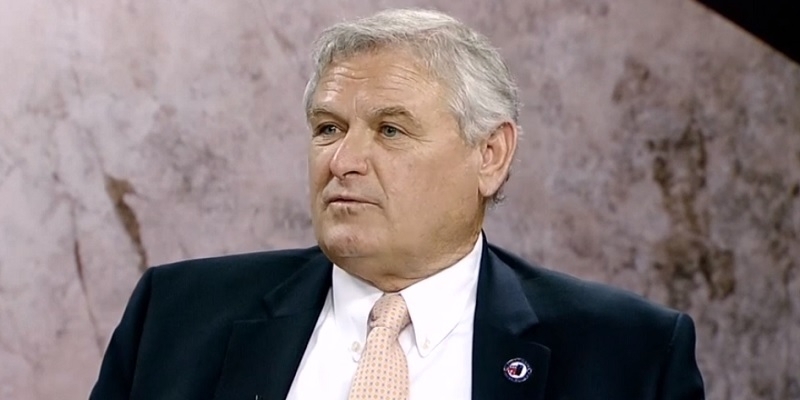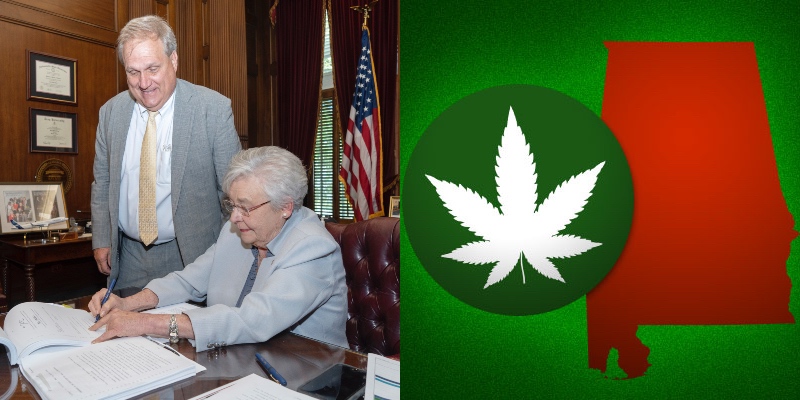Add the plans of Alabama legislators to the many facets of life disrupted by the coronavirus.
After a pandemic-induced six-week break from mid-March until early May, state leaders agreed that upon resumption of session, only local bills and the budgets would be voted upon because the statehouse had to be closed to the public as a health precaution.
That decision meant dozens of bills, which earlier in the session had passed out of one chamber or the other, will not soon see the light of day.
Among the notable pieces of legislation stymied by COVID-19 is a bill to further protect police officers, a bill to allow for medical marijuana, a bill to allow yoga in schools, a package of bills making Alabama more military friendly and a bill to make Dauphin Island Sea Lab the official Aquarium of Alabama.
State Representative Rex Reynolds’ (R-Huntsville) bill to that would make law enforcement officers a class of individuals protected by hate crime statutes was the subject of many headlines in February when it was introduced. The legislation passed the House 93-0 but was left languishing in the Senate at the end of the coronavirus-shortened session.
State Senator Tim Melson’s (R-Florence) initiative to allow doctors in Alabama to prescribe medical marijuana is among the most notable pieces of legislation left out in the cold.
The bill saw some of the longest, most intense discussion on the floor of the Senate and in the end passed with 11 republicans voting nay.
The medical marijuana discussion in the House was poised to be one of the most fraught of the session before COVID-19 put the whole issue on the back burner.
Legislation from State Rep. Alan Baker (R-Brewton) and House Majority Leader Nathaniel Ledbetter (R-Rainsville) dealing with retirement for teachers and judges respectively were set to be hot topics of discussion before the rest of the session evaporated.
Though its ultimate fate was uncertain, a prominent lottery bill was introduced by State Rep. Steve Clouse (R-Ozark) and had dozens of co-sponsors, including House Speaker Mac McCutcheon (R-Monrovia).
Even as Governor Kay Ivey attempted to head off gaming talk with the formation of a group in January that was designed to study the issue, a lottery discussion was likely to occur in the House if COVID-19 had not arrived in Alabama.
One of Ledbetter’s priorities for the session was an upgrade to the state’s mental health offerings.
As part of the appropriations process, Ledbetter was able to secure a $5 million investment in mental health service coordinators for school systems, but many other parts of his project were upended by the coronavirus shortening the session.
Two pieces of legislation under Ledbetter’s mental health umbrella were stalled out due to COVID-19; A bill from Rep. Rex Reynolds that would require 16 hours of crisis intervention training for police officers; and a bill from Rep. Wes Allen (R-Troy) that would allow officers of the law to take people experiencing mental health episodes into protective custody.
Most observers widely expect at least one special session of the legislature to be called by Ivey later this year, and many feel the mental health bills would likely see passage at that point.
Lieutenant Governor Will Ainsworth put together a package of bills aimed at making Alabama a more friendly state to those service in America’s armed forces.
Bills that would make it easier on spouses and children of active duty service members to obtain jobs and schooling were sponsored by State Senators Tom Whatley (R-Auburn), Will Barfoot (R-Pike Road) and Donnie Chesteen (R-Geneva)
Though not directly part of Ainsworth’s package, in the House, State Reps. Rhett Marques (R-Enterprise) and David Standridge (R-Hayden) sponsored similar pro-military bills that would exempt veterans and/or active-duty members from certain state fees.
None of those bills were able to make it through due to COVID-19, but they all have strong support from both sides of the aisle, making them likely to see passage at some point in the future.
Violent offenders on work release will go another year with unencumbered ankles because of COVID-19. State Rep. Matt Simpson’s (R-Daphne) bill to require prisoners convicted of violent offenses to wear ankle monitors while on work release passed the House but did not have time for consideration by the Senate because of the coronavirus.
A statehouse insider tells Yellowhammer that in addition to those bills that had passed out of one of the chambers, several bills that had not yet reached that stage were likely to be important topics of discussion.
A two-bill package termed the Jobs Act that dealt in part with tax credit renewal, and a bill on the simplified sellers use tax (SSUT), had not yet been fully introduced, but were priorities for leadership that will have to wait until a future meeting of the legislature.
Smaller affairs that are still the duty of government also slipped by the wayside due to the coronavirus.
State Rep. Jeremy Gray’s (D-Opelika) bill to allow yoga to be taught in schools will have to wait for a new session. Alabama will remain the only state in the union that prevents yoga instruction.
It cleared the House of Representatives by a vote of 84-17, but because of COVID-19, students in Alabama’s public schools will have to keep their mats at home for another year.
Alabama is currently without an official state aquarium, and it looks to stay that way for another year.
State Rep. Chip Brown (R-Hollingers Island) passed a bill through the House that would designate Dauphin Island Sea Lab as the official Aquarium of Alabama but that legislation, like so many others, will have to wait.
Henry Thornton is a staff writer for Yellowhammer News. You can contact him by email: [email protected] or on Twitter @HenryThornton95













